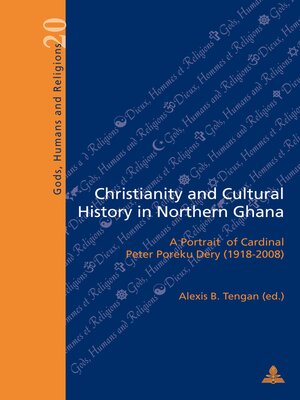Christianity and Cultural History in Northern Ghana
ebook ∣ A Portrait of Cardinal Peter Poreku Dery (19182008) · Dieux, Hommes Et Religions / Gods, Humans and Religions
By Gabriel Fragnière

Sign up to save your library
With an OverDrive account, you can save your favorite libraries for at-a-glance information about availability. Find out more about OverDrive accounts.
Find this title in Libby, the library reading app by OverDrive.



Search for a digital library with this title
Title found at these libraries:
| Library Name | Distance |
|---|---|
| Loading... |
On Monday 23 April 1906 the Missionaries of Africa, also known as the White Fathers, arrived from Upper Volta, today known as Burkina Faso, in Navrongo to begin their missionary activities in northern Ghana. The small group consisted of three missionaries and a contingent of twenty Africans as helpers. Socially and culturally, the region was still suffering from the consequences of the recently outlawed practice of slave raiding and the terror regimes initiated by Zambarma generals such as Samouri and Babatu.
The inhabitants were still to come to terms with the European use of military force to try to establish colonial rule. Many of the populations and groups residing in what was then called the Northern Territories of Ghana, and also those in semi-urban trading centres such as Tamale, Wa and Bawku, had, over the past century, come to adopt aspects of Islamization within their cultures and had accepted the centralizing chieftaincy structure as their main socio-political system.
Cardinal Dery was born around this time into a priestly class among the Dagara people, and his life story as a religious leader vividly captures the cultural evolution of the whole region within this period.
The inhabitants were still to come to terms with the European use of military force to try to establish colonial rule. Many of the populations and groups residing in what was then called the Northern Territories of Ghana, and also those in semi-urban trading centres such as Tamale, Wa and Bawku, had, over the past century, come to adopt aspects of Islamization within their cultures and had accepted the centralizing chieftaincy structure as their main socio-political system.
Cardinal Dery was born around this time into a priestly class among the Dagara people, and his life story as a religious leader vividly captures the cultural evolution of the whole region within this period.







